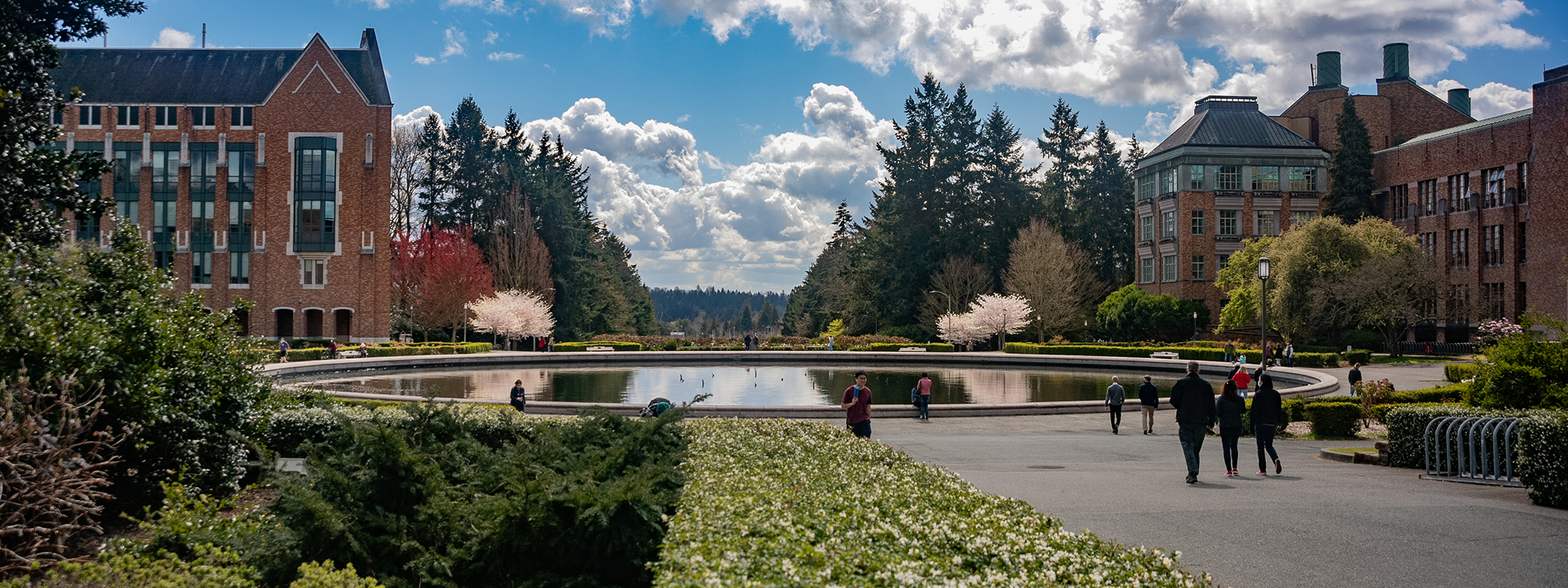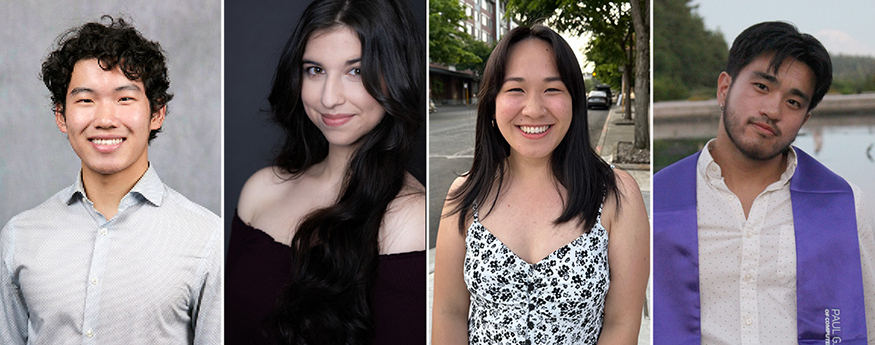
Do Dean’s Medalists have more hours in their day than the rest of us? It seems like it, given all that the 2025 Arts & Sciences Dean’s Medalists accomplished at the UW. They worked in multiple labs, held leadership roles on campus, presented at conferences, were published in scholarly journals, volunteered in the community, and mentored fellow students, all while earning top grades in challenging courses.
The Dean’s Medal is awarded by the College of Arts & Sciences each spring to four graduating seniors — one from each of the College’s four divisions — based on academic performance and faculty recommendations.
Here’s more about the 2025 medalists:
Priya Hendry, Dean’s Medalist in the Arts
Dave Young, Dean’s Medalist in the Natural Sciences
Emma Peterson, Dean’s Medalist in the Humanities
Andre Ye, Dean’s Medalist in the Social Sciences
Priya Hendry
Dean’s Medalist in the Arts
BA, Drama; BA, Law, Societies & Justice
Priya Hendry’s love of theater and her commitment to social justice led her to major in both drama and law, societies & justice. The interplay between the two majors was evident to those who have worked with her.
“Priya always brought an intelligent, interdisciplinary, and equitable lens to understanding theater, the stakes of theatrical work, and the arts ecosystem,” writes Jasmine Mahmoud, assistant professor of drama, in her letter nominating Hendry for the dean’s medal. “Her attention to justice, racial equity, clarity, and institutional processes is incredibly strong.”
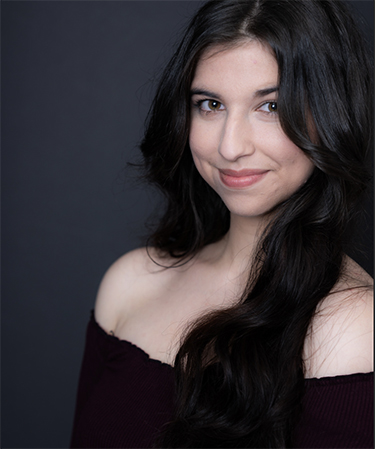
Hendry was involved in theater productions both on stage and behind the scenes. In addition to acting in UW productions, she served as a costume designer, assistant stage manager, and director. She also took on various leadership roles in the Undergraduate Theatre Society (UTS), a registered student organization that provides more opportunities for students to present plays. Most recently, she served as UTS’s executive director.
As a departmental honors student in drama, Hendry developed and performed an interactive solo show, “Probably my uterus has wandered,” as her honors capstone project. The show focused on “madness” though the lens of disability justice, feminism, and performance studies. It was based on Hendry’s research into hysteria, women’s health, mental health, medicine, and madness, as well as her own family history.
“It was an incredibly innovative, colorful, and poignant solo performance …that brought us together to think about women’s health histories,” writes Mahmoud, who served as Hendry’s adviser for the capstone project.
Storytelling also figured into Hendry’s work in the social sciences. She participated in Storytelling for Migrant Justice, a UW Center for Human Rights (UWCHR) project — in collaboration with immigrant rights group La Resistencia and Hinton Publishing — that aims to acknowledge and record the experiences and stories of immigrants detained by Immigration and Customs Enforcement (ICE). For that project, Hendry met with and interviewed people detained at the Northwest ICE Processing Center. She also helped with other human rights projects as a UWCHR research assistant.
Bringing that lens back to theater, Hendry has incorporated disability and racial justice into the curriculum for local arts education programs for children.
“Priya Hendry is incredibly responsible, kind, intellectual, curious, and hardworking,” says Mahmoud. “Through her hard work and the connections she makes across theater through an equitable lens, she makes [our] community better.”
Dave Young
Dean’s Medalist in the Natural Sciences
BA, Psychology, BS, Biology
minor in Global Health
Dave Young excelled academically at the UW, worked in multiple research labs, volunteered at free clinics, and held health education sessions at homeless shelters. He also found time for leadership roles on several committees, including the Biology Department Diversity and Equity Committee, the American Medical Student Association of Seattle, and the TriBeta Biological Honor Society.
“David doesn’t do these things to pad his resume,” writes Geoffrey Boynton, professor of psychology. “His involvement is driven by genuine intellectual curiosity, compassion, and a strong sense of civic responsibility.”
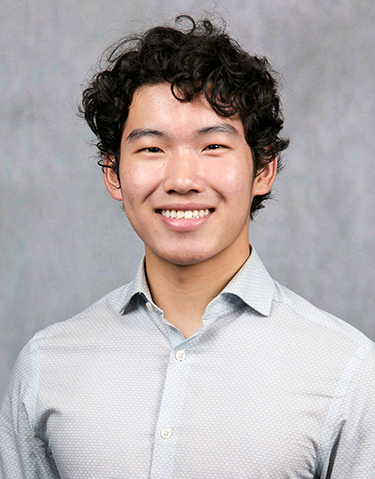
As president and peer coach for TriBeta, an honor society for students in the biological sciences, Young worked with TriBeta’s tutoring staff to translate complex information into a digestible format for students. He did the same as a teaching assistant in PSYCH 101, taking the initiative mid-quarter to develop an Academic Skills Toolkit.
“His toolkit reflected a deep understanding of student learning needs,” notes Tabitha Kirkland, associate teaching professor of psychology, who taught the course.
Research was an important part of Young’s UW experience. As a research assistant at Fred Hutchinson Cancer Center, he looked at the role of tRNAs (molecules involved in protein synthesis) in the development of drug resistance in prostate cancer. In the Vision & Cognition Group at the UW Center for Human Neuroscience (CHN), he completed an honors thesis studying whether Deaf individuals have different visual spatial attention mechanisms than hearing individuals.
“Dave has a natural intuition for understanding what makes a good or interesting experiment — a critical first stage for being a successful scientist that even graduate students often struggle with,” says Ione Fine, CHN co-director and professor of psychology.
All of Young’s efforts have been noticed. He received twelve scholarships and awards while at the UW, had four publications (three of them first-author), and shared his research in sixteen poster presentations.
“I’ve never met such an accomplished yet unassuming student,” notes Karen Petersen, teaching professor emerita in the Department of Biology. “I have watched him seek both new personal challenges as well as find additional ways he can help improve the education and experiences of his fellow students.”
This fall, Young will join Stanford University School of Medicine as a first-year medical student.
“Dave is driven to make every moment count to achieve the goals he wants to achieve,” says Fine. “And that goal is less about himself than his desire to serve the community.”
Emma Peterson
Dean’s Medalist in the Humanities
BA, Global Literary Studies, BA, Comparative History of Ideas
“If there were such a thing as a decathlon in the Humanities, Emma Peterson would be a future hall-of-famer,” says Marthadina Russell, administrator for the Comparative History of Ideas Department (CHID). That’s no hyperbole. Peterson’s leadership roles at the UW read like a love letter to the Humanities.
As co-director of “Question, Critique, Create,” a UW registered student organization (RSO), Peterson launched LitFest, the UW’s first literary festival, in May 2025. The two-day festival, a student-driven initiative, was introduced to uplift the work of talented writers, artists, and scholars in the UW community. It included workshops, author readings, and book fair vendors. The same RSO also organized the CHID Research Celebration, an opportunity for students to present their humanities research in a collaborative, low-stakes environment.
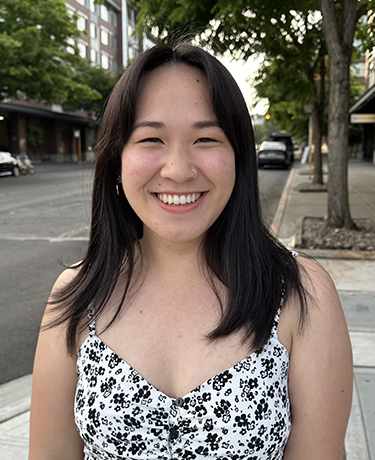
Peterson was among the presenters at the research celebration, discussing her CHID honors thesis, titled “Silent Suffering — Remediating my Family Archive.” She describes the project as an “attempt to confront my family history of privilege, oppression, and enslavement… and to reconstruct a family history that encompasses the voices forgotten through the generations.” The thesis includes a website and a related sculpture.
“As I’ve worked with Emma, what stands out for me is her deeply careful, introspective, thorough, and principled engagement with her research,” says Peterson’s thesis adviser Sonnet Retman, associate professor of CHID and American ethnic studies. “The ethics of her inquiry are as much the subject of her research as her genealogical, ethnographic, and historical findings.”
Peterson also served as editor-in-chief of Bricolage Literary & Visual Arts Journal during her senior year. The publication, published annually by UW undergraduates for more than forty years, features prose, poetry, and visual art. Under Peterson’s leadership, the Bricolage team produced a companion digital zine for the first time this year.
Beyond the humanities, Peterson has helped hundreds of UW students find their place at the University as a peer adviser in Undergraduate Academic Affairs Advising and at the Career & Internship Center. In spring 2025, as a program specialist for UW First Year Programs, she developed a new student position and a three-day training curriculum to provide a virtual registration option for incoming first-year students and transfer students.
“Emma is one to watch,” says Retman. “I look forward to learning from her brilliance and generosity wherever she next takes this work.”
Andre Ye
Dean’s Medalist in the Social Sciences
BA, Philosophy, BS, Computer Science
MINORS IN History, Mathematics
“I have taught over a thousand undergraduates, and Andre Ye is the single most impressive undergraduate student I have ever taught,” writes philosophy professor Rose Novick in her nomination letter for dean’s medalist Andre Ye. That glowing praise is echoed by nearly everyone who has interacted with Ye.
And for good reason. Ye, who arrived at the UW after middle school through the Robinson Center for Young Scholars’ early entrance program, made an impact in both of his majors, philosophy and computer science. He is interested in large language models and how artificial intelligence might help philosophers improve on and deepen their thought.
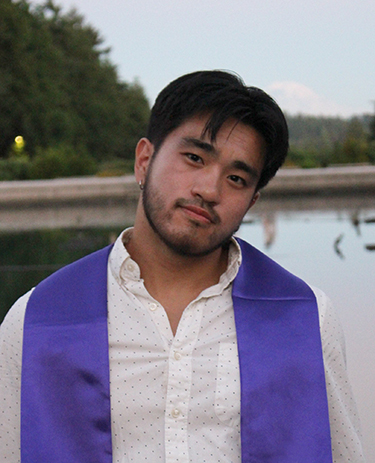
“Talking with him is refreshing,” writes Sara Goering, professor and chair of the Department of Philosophy. “He’s thought about how AI might productively reorient and slow down our own thinking, offering…opportunities for inventive connection and learning.”
Beyond his research in the Department of Philosophy, Ye worked in several faculty labs in the Paul G. Allen School of Computer Science and Engineering, including the Social Futures and RAIVN labs. His wide-ranging research has included medical image segmentation, critical thinking with language models, cultural bias in computer vision, and human-AI interaction. Several research papers Ye has authored or co-authored have been accepted to prestigious journals.
“Andre’s academic achievements would be exceptional for a PhD student,” writes Magda Balazinska, professor and director of the Allen School. “For an undergraduate, they are nearly without precedent. In addition to his publications, he is the author of two textbooks on deep learning — written and published as a freshman — and has contributed over 350 essays to a public-facing blog on AI and data science, with over 10 million views.”
Ye also encouraged interdisciplinary exploration of AI as a co-founder of I2: Interactive Intelligence, a research group that brings together students from philosophy, neuroscience, and AI. And he served as a teaching assistant in UW computer science and English courses and as a mentor to high school students through The Coding School.
This fall, Ye will begin a doctoral program in computer science at the Massachusetts Institute of Technology.
“I am excited to see what kind of work he develops in his doctoral program as he brings both his technical computer science savvy and his deep philosophical commitments to his graduate-level independent research,” says Goering.
More Stories

What Students Really Think about AI
Arts & Sciences weigh in on their own use of AI and what they see as the benefits and drawbacks of AI use in undergraduate education more broadly.

AI in the Classroom? For Faculty, It's Complicated
Three College of Arts & Sciences professors discuss the impact of AI on their teaching and on student learning. The consensus? It’s complicated.

Bringing Music to Life Through Audio Engineering
UW School of Music alum Andrea Roberts, an audio engineer, has worked with recording artists in a wide range of genres — including Beyoncé.
